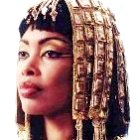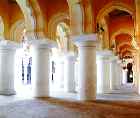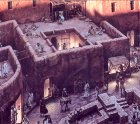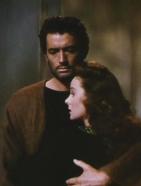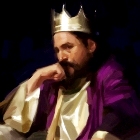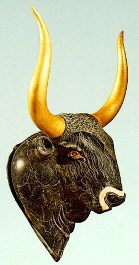King Solomon in the Bible
Solomon’s struggle for the crown
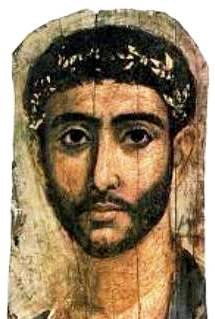 We know much more about Solomon than about the other kings of Israel and Judah for two reasons:
We know much more about Solomon than about the other kings of Israel and Judah for two reasons:
- he seized the throne by force of arms, and then took pains to justify this to later generations
- he was the only king, after his father David, who was shrewd and clever enough to hold the twelve tribes of Israel together in one nation.
Who was Solomon?

When David captured Jebus, it only covered the small area in the bottom right of this map. Solomon extended the city into the large northern area
He was the son of King David, born to a commoner who was seduced by David. The woman, Bathsheba, was married to one of his highest-ranking soldiers.
Or perhaps she seduced him? The text seems to imply that both were to blame.
Should Solomon have been king?
Solomon may or may not have had an elder brother – there were always whispers about his legitimacy. The story of an elder brother who died as an infant may have been an attempt to scotch this rumour.
The practice of primogeniture, where the eldest son automatically gained the throne after the death of the king, was not firmly established, and Solomon grew up in a highly competitive court.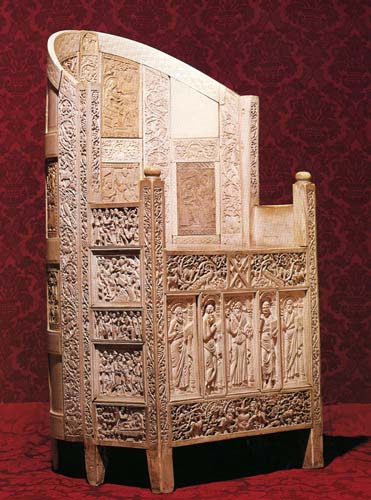
In earlier times, the prophets had nominated and anointed the kings Saul and David), but this tradition was not as firmly established as it once had been.
Now, each woman competed to have her son gain precedence over the other sons of the king.
Several sons older than Solomon – Absalom, Amnon – had already died under violent circumstances by the time he reached his teens, but most people expected Adonijah, the eldest remaining son, to succeed David.
Solomon’s & Bathsheba’s fight for power
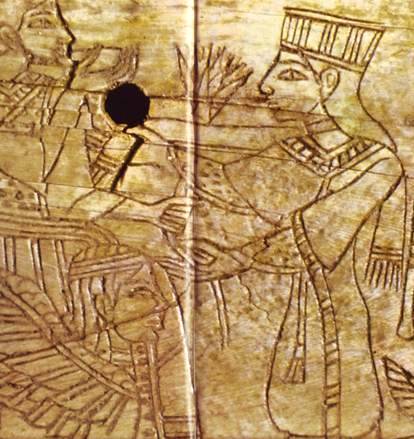
Ivory plaque from Megiddo. It may show a Queen Mother, the most powerful woman in the Court – which is what Bathsheba was.
The power bloc behind Solomon had other ideas.
Led by Bathsheba and Nathan, they gained the backing of sections of the priesthood and, more importantly, King David’s mercenary troops.
When David grew old and lost his authority, and Adonijah sought to take over the throne, Solomon’s political backers made a counter-move.
First they placed Solomon on the throne, and then they executed Adonijah on a trumped-up charge.
For more on this story, see Bible Women: Bathsheba
Solomon’s prayer for wisdom
During the early years of his reign, Solomon’s grip on power was not strong.
Fortunately he was an exceptionally shrewd young man, with an exceptionally shrewd old mother to guide him, and he took steps to consolidate his power.
He began to develop a mythology around his relationship with God. One example of this is the story of the dream he had, where God appeared to him and asked him what he wanted.
Instead of riches or power, Solomon asked for ‘an understanding mind to govern your people, able to discern between good and evil’.
The Bible says that God was pleased with Solomon’s answer, and promised him not only
- wisdom as he had requested, but
- long life
- riches and
- honor.
The wisdom of Solomon
Solomon also cultivated the idea that he was exceptionally wise.
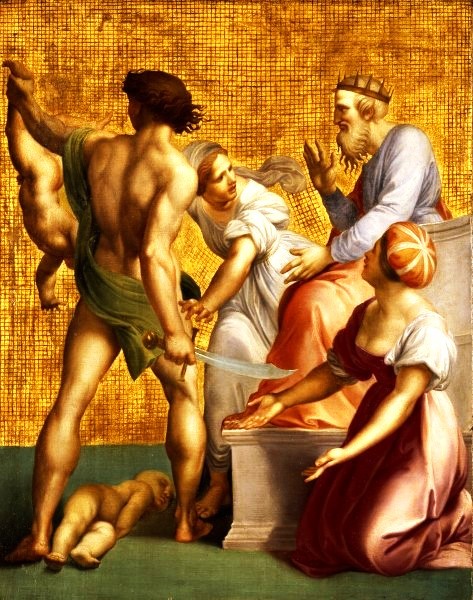
Judgement of Solomon, Giuseppe Cades, 1750
Immediately after the account of the dream is the story of his famous judgment on the two prostitutes who came to him asking for a decision on their dispute.
Each of them had given birth to a baby, but one of the babies had died.
The woman who had the dead baby claimed the other woman had stolen her living child and substituted the dead one. The other woman denied this, and claimed the living child as her own. Both of them stuck to their respective story, and asked that Solomon decide who should have the living child.
Solomon responded by asking for a sword, then he made as if to cut the living child in two. Each woman, he said, could have half a child each.
The woman who was the real mother was terrified that her child would be killed, and offered to give it to the other. The other woman stood her ground, ‘It shall be neither mine nor yours; divide it.’
Solomon told the court to give the living baby to the first woman – she was obviously the child’s mother.
The Bible comments that ‘all Israel stood in awe of the king because they saw the wisdom of God in him’.
Solomon and the Queen of Sheba
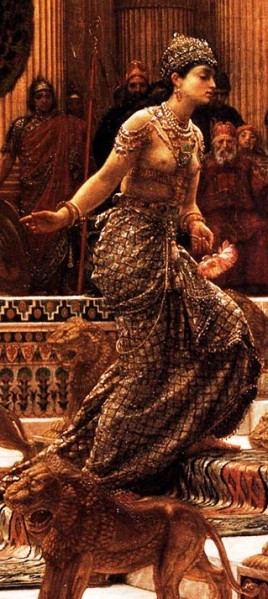
‘The Visit of the Queen of Sheba to King Solomon’, Sir Edward John Poynter, detail
The population of Israel had almost doubled since the period of King Saul, and Israel was now in the mainstream of near-eastern trade and diplomacy.
The story of the visit of the Queen of Sheba is meant to illustrate this. It reflects the commercial relationship between Solomon’s Israel and south-western Arabia.
The Queen’s subjects had established an expanding kingdom along the spice and incense routes leading through Israel to Mesopotamia – and of course Solomon controlled parts of these routes.
Sad to say, the fabled meeting between the beautiful Queen and the King renowned for his wisdom was essentially a business conference romanticized by the biblical writers.
Solomon builds the Jerusalem Temple
Perhaps Solomon’s most famous achievement was building the Temple in Jerusalem. The massive platform on which it was built still survives.

The Temple of Dendur; Solomon’s Temple may have had a similar design
This Temple, which was part of an elaborate palace complex, is described in detail in the Bible. It was an impressive building, modeled on the sanctuary at Shiloh and built by Phoenicians – Hiram of Tyre sent cedar and fir-wood, as well as architects, overseers and labor teams, in exchange for grain and olive oil.
For more information on the Temple, see Solomon’s Jerusalem: the Temple & Palace
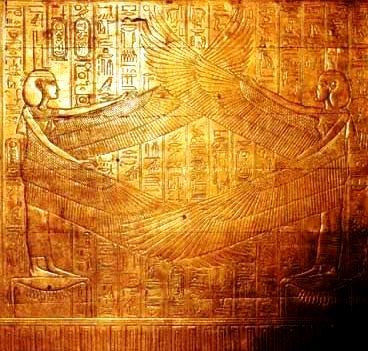
Gold panel from Tutankhamun’s coffin, with figures like the cherubim in Solomon’s Temple in Jerusalem
This foreign influence was evident in the Jerusalem shrine. Solomon, who was probably only half-Israelite (his mother was a Jebusite, not an Israelite), leaned towards a fusion of Israelite and Canaanite practices. Certainly he worshipped Jahweh, but he also prayed to Canaanite and foreign deities as well: Ashtoreth of Sidon, Chemosh of the Moabites, Moloch of the Ammonites.
The Bible blames Solomon’s foreign wives and concubines for this, but it is probably truer to say that Solomon took foreign wives in order to build bridges between his Canaanite and Israelite subjects, as a way of unifying his nation.
After all, he governed a nation of mixed race and religion, and a large part of Solomon’s ‘wisdom’ may have been his ability to juggle these competing groups.
King Solomon’s old age
In the last part of his reign his wisdom seems to have deserted him. The relationship with Israel’s neighbor Edom soured, and warfare began to drain the resources of the kingdom. Solomon had taxed both rich and poor with as much enthusiasm as any modern government, but now the worm began to turn.
At home, the priests of Jahweh became increasingly hostile as they saw their own power eroded. They looked for an alternative king and found it in Jeroboam, who subsequently led a rebellion against Solomon.
The rebellion was put down and Jeroboam fled to Egypt, but it would flare up again later, displacing Solomon’s son Rehoboam who lacked the ability of his father.
King Solomon dies – and what then?
At Solomon’s death, the kingdom lay poised for change – and change is what it got.
The United Kingdom of Solomon split apart when he died. Not for a thousand years would it again be unified.
Bible People in Solomon’s story
- Solomon, long-reigning and astute son of King David and of Bathsheba, noted for his wisdom and his love of women – and also for his clever diplomacy
- David, his father, who united the tribes of Israel into one nation but could not control his own family
- Bathsheba, an extraordinary Jebusite woman, mother of Solomon, who engineered her son’s succession to the throne
- Queen of Sheba, exotic ruler of an expanding kingdom along the spice and incense routes passing through Israel
© Copyright 2006
Elizabeth Fletcher

